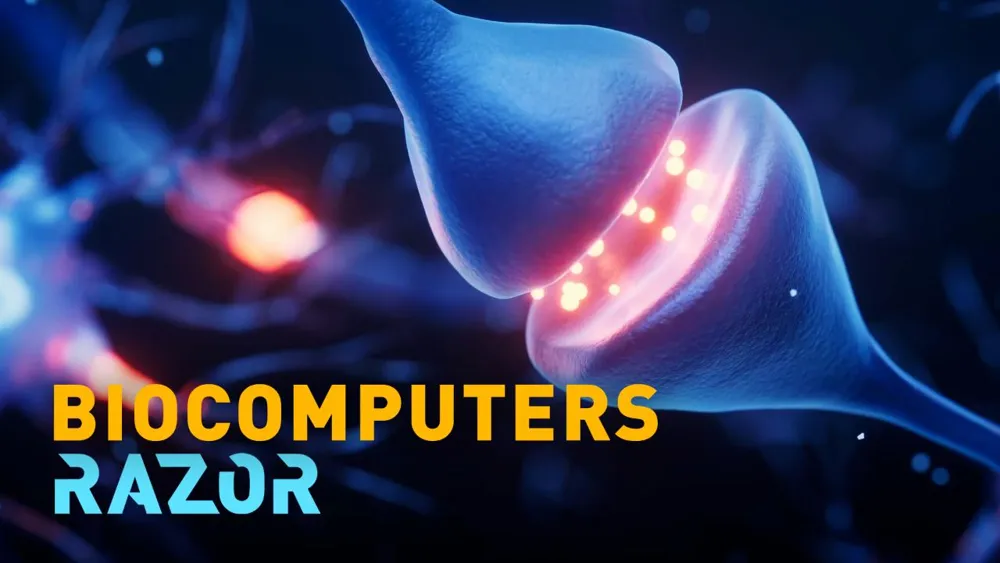RAZOR Computers Built from Human Brain Cells May Revolutionize AI

A Swiss start-up is forging a new path in the field of bio-computing by developing computers constructed from human brain cells. This innovative technology could lead to a significant transformation in Artificial Intelligence systems, providing enhanced energy efficiency and processing capabilities.
Located on the picturesque shores of Lake Geneva, this ambitious venture is part of a growing trend known as 'wetware' or bio-computing, which integrates biological components with traditional computing technologies.
Amelia Hemphill of RAZOR recently visited the FinalSpark lab in Switzerland to gain insight into the intricate process of growing and training brain organoids, the building blocks of this cutting-edge technology.
FinalSpark has undertaken the fascinating task of cultivating living brain organoids, each consisting of approximately 10,000 neurons derived from stem cells. These organoids, roughly 0.5mm in diameter, are carefully maintained in incubators at near body temperature to ensure their survival.
To facilitate communication and training, these organoids are equipped with tiny electrodes that allow researchers to interact with them, unlocking the potential for advanced computing capabilities.
While the current state of this technology remains in its nascent stages, the prospective advantages over conventional processors are substantial. Chief among them is the anticipated energy efficiency.
As the demand for cloud computing and AI data centers continues to escalate, the implementation of bio-computers could result in significant energy savings once fully realized.
This pioneering approach represents a remarkable intersection of biotechnology and computing, where the lines between biological systems and artificial intelligence are increasingly blurred.
Read These Next

NASA Seeks Public Input on Jet Research
This commentary discusses the recent sighting of gigantic jets by NASA and its implications for atmospheric science, emphasizing the importance of public engagement in scientific discovery.

Experts Warn of Public Health Crisis Amid Trump Administration Cuts
Health experts warn that U.S. public health budget cuts may worsen foodborne illnesses and threaten national health standards.

Chinese Scientists Use Amateur Telescopes for 3D Satellites
Chinese scientists have successfully reconstructed the 3D trajectories of satellite observations using amateur telescopes, indicating a move toward inclusivity in space research.
